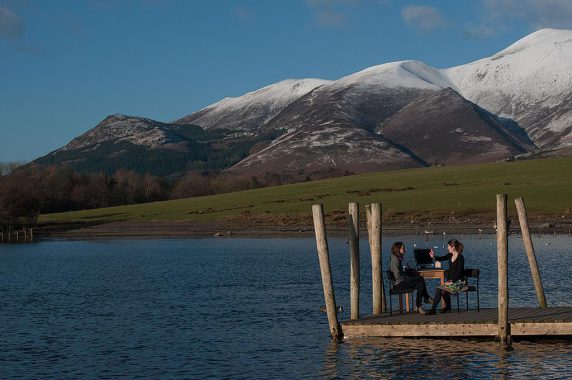Exclusive Refugee GPs who have been granted asylum in the UK could be offered support and mentoring in return for working in an area particularly badly hit by the recruitment crisis.
Commissioners in Cumbria are also targeting ex-military GPs and GPs in their first five years of training as part of a number of proposals for solving the dire GP recruitment crisis in West, North and East Cumbria.
A report on the difficulties facing the region also reveal that 47% of GP partners in the region are planning to retire within the next ten years and a third of practices have applied to NHS England for vulnerable practices funding.
Cumbria is one of many regions severely suffering from the GP recruitment crisis in England, in response to which NHS England launched last year’s ten-point plan that included measures such as bursaries for returners.
The region has also been put under the responsibility of the so-called NHS ‘success regime’, because of its financial difficulties and safety issues highlighted in acute care.
In March, leaders of the regime wrote a report to the CQC detailing the problems and proposing solutions, which it will shortly consult on.
The report warns that general practice in the region is ‘very fragile’, partly because of a 15% increase in GP patient contact in the last five years, pressures in acute hospitals and ‘significant issues’ with GP premises.
As such, it listed a number of ‘short-term actions’ to boost general practice, including:
- A support and mentoring scheme for ‘doctors who have been granted asylum and have refugee status, ex-Forces GPs, and GPs in their first five years of qualification.’
- Offering specialist training in cooperation with the acute trusts;
- Releasing practices from ‘onerous premises-related issues’, potentially via ‘greater co-location of primary care services with the wider out-of-hospital services’.
- ‘Moving towards seven-day access in GP practices’ is highlighted as a means to boost both recruitment and retention of GPs.
- As previously reported by Pulse, parts of Cumbria are also among seven areas in England where GP trainees will be offered a £20,000 ‘golden hello’.
Dr Geoff Jolliffe, NHS Cumbria CCG interim clinical chair and a GP in Barrow, said: ‘If there are competent people [who are refugees], who can speak English and are properly trained and can pass our procedures then I think that is a valid thing to do, but I don’t think it will solve our problems.
‘The long-term solution will be to understand what attracts people and redesign the job accordingly.’
Peter Higgins, chief executive of Lancashire and Cumbria LMCs, said the actual situation is probably that the ‘majority’ of practices are vulnerable in the area, because there is ‘no influx’ of new GPs to the area.
West, North and East Cumbria was one of three financially challenged regions put into special measures by NHS England last year, in a move which dubbed them ‘success regimes’.
A spokesperson for the West, North and East Cumbria Success Regime said: ‘The CQC submission in March this year contained some early thinking from the Success Regime, but by no means constitutes formal plans or proposals.
‘We are currently in a period of extended engagement and reflection on the thousands of views we have heard from people across Cumbria, including from local GPs.
‘When we have developed potential proposals for change, these will be subject to a full consultation.’
Cumbria last year launched a campaign highlighting the beauty of the region in order to attract GPs, running a series of pictures of GP consultations taking place outside (pictured).
Pulse October survey
Take our July 2025 survey to potentially win £1.000 worth of tokens













